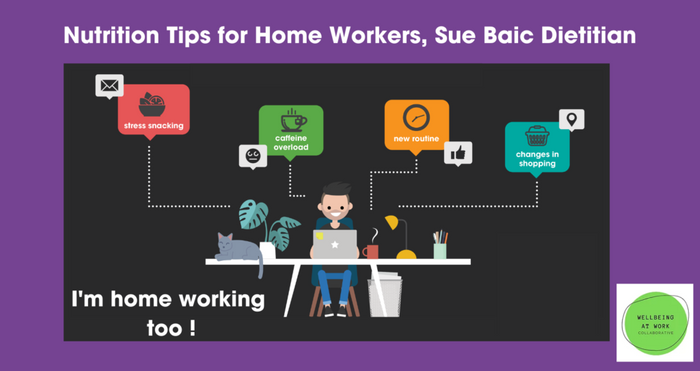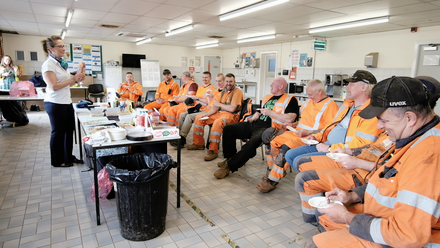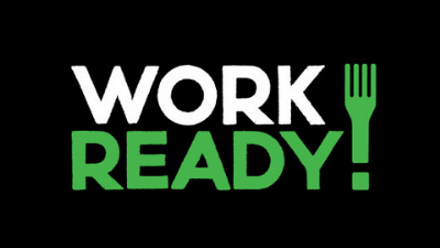A recent Ipsos MORI poll suggested that around one in three adults in the UK have eaten less healthily since the start of the coronavirus pandemic. Even those of us who tried to improve our eating habits didn’t continue - one in six of this group admitted they’d given up on any positive routines adopted during the early weeks of the pandemic!
With home working becoming the new normal for many of us this can be a great opportunity for Work Ready dietitians to flag up positive and tailored dietary messages. Problems can arise during home working when eating space and working spaces overlap, we lose the useful cues from colleagues to take refreshment breaks or when unhealthy snacks are on tap 24/7.
In November 2020 I took part in a Virtual Staff Wellbeing Festival run by the University of Bristol. This was a week-long programme of virtual events to help staff focus on aspects of their own wellbeing organised by the Department of Staff Engagement and Development.
To deliver my workplace nutrition sessions I partnered with a chartered physiotherapist and a mindfulness practitioner at The Wellbeing at Work Collaborative.
Together we provided a series of hour-long webinars for home workers amongst the university staff helping them deal with some of the challenges posed. We covered background evidence on the links between activity, diet and health (both physical and mental) with an emphasis on practical strategies to help staff improve home working habits.
The webinars, free to participants, were held during the working day with around 100 staff attending each session.
Some key areas of our content included:
- Ensuring good posture whilst home working
- Recognising the health benefits of physical activity breaks and stretching during the day
- The importance of establishing a routine and refreshment breaks
- The role of nutrition in immunity and gut health
- The importance of fluid and tips for good workplace hydration
- Healthy snacking and avoiding overeating
- The benefits of mindfulness and the science behind it
- Managing stress with lifestyle
To try and reduce avoid the passive effects of Zoom overload we included an interactive quiz, some stretching exercises and a short mindfulness activity as well as some practical goal-setting activities.

We provided email copies of the slides and linked participants to sources of further information such as the free-to-download BDA Food Fact sheets.
Immediate process evaluation showed a high attendance from those registered with staff really enjoying the sessions and valuing the useful suggestions for home working. Staff commented on the benefits of having three different “experts” in one session all combining bite-sized nuggets of practical information. We are currently awaiting outcome evaluation on goal setting with participants to assess the impact on lifestyle in this group of home workers.
During the session, participants asked many questions using the chat box which we addressed as a panel at the end of each webinar. From a dietetic perspective these were predominantly around the types of drinks that count for hydration, weight gain, the role of probiotics and vitamin D supplements. There were some quite specific questions from participants about medical issues related to diet which could be addressed after each session including signposting to sources of additional and reliable information and links for self-referral to a freelance dietitian register where appropriate.
Some of my top takeaways from doing this piece of Work Ready activity were:
- The importance of taking the initiative to approach an organisation. We had approached the university some weeks previously offering our service and they remembered this when it came to planning their wellbeing festival
- The value of offering an evidence-based approach delivered by HCPs
- The appeal of combining several areas of lifestyle expertise
- The benefits of tailoring information to meet a specific need in a group of staff e.g. home working
- The importance of providing clear and measurable outcomes to allow for effective evaluation of the intervention
More information
References
- Centre for Ageing Better and Ipsos MORI ( 2020) The Experience of people approaching later life in lockdown . Available at https://www.ageing-better.org.uk/publications/experience-people-approaching-later-life-lockdown-impact-covid-19-50-70-year-olds (Accessed November 2020)
- BDA ( 2020) Food Facts https://www.bda.uk.com/food-health/food-facts.html ( Accessed November 2020)






